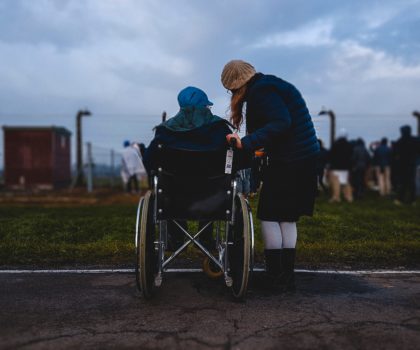Unfortunately, many senior homeowners have seen large chunks of their retirement disappear, making a reverse mortgage for seniors something they may need to consider. Of course the shaky economy has hit people from all walks of life, but often seniors on a fixed income who may be unable to find work are hit the hardest. A reverse mortgage for seniors may allow you to meet financial obligations which have arisen such as doctor co-pays and prescription drug costs. The ongoing debate is whether a reverse mortgage for seniors is actually the best option for taking care of financial obligations.
What is a Reverse Mortgage for Seniors?
Reverse mortgages are an often-heard buzzword among seniors who are struggling to cover their regular monthly financial obligations. A reverse mortgage for seniors is a particular type of home loan, which allows seniors to convert at least a portion of the equity they have built up in their home into cash. The major difference between a reverse mortgage as opposed to simply refinancing your home is that as long as the senior borrower continues to meet the obligations of the mortgage, there is no repayment required. A reverse mortgage for seniors can also be used to purchase a primary residence if you have a sufficient amount of cash on hand to pay the difference between the price of the home and the proceeds you receive from the reverse mortgage—plus all closing costs.
Requirements and Benefits of a Reverse Mortgage for Seniors
Because of some potentially negative aspects of a reverse mortgage for seniors, many people are a bit leery of entering into such an agreement, even if they are currently in financial distress due to unexpected expenses. There are certain benefits to be had from a reverse mortgage for seniors, especially among the newer plans available.
A reverse mortgage for seniors comes in the form of an FHA or HECM, and requires that the homeowner be at least 62 years old and either own their home outright or have a relatively low balance on their mortgage which can be paid off at closing. Your home must be your primary residence and will either be a traditional single-family home or a duplex, triplex or fourplex in which you reside in one of the units.
The primary benefit of a reverse mortgage for seniors is that you are not required to make monthly principal and interest payments, and you are paid by your lender depending on the payment plan you select. You are still required to pay all necessary real estate taxes, insurance and utilities on your home, but the primary upside to a reverse mortgage is that you will never be foreclosed on or forced to vacate your home due to a missed mortgage payment.
The Downside of a Reverse Mortgage for Seniors
A reverse mortgage for seniors must still be repaid by you or your heirs. One of the major concerns regarding a reverse mortgage for seniors are the difficulties that can arise should the homeowner become ill, if they are unable to pay their property taxes or become disabled and not be able to keep up the home. Any of these occurrences would require the reverse mortgage to be repaid, although the payments would likely still be smaller than those in a typical mortgage.
To recap, your HECM loan must be repaid when you die or sell your home or if you neglect to pay all applicable property taxes or insurance, move to a new residence, fail to live in your home for 12 months in a row, or allow your property to fall into severe disrepair and are unable to keep it from deteriorating. After your death, your senior home will be sold and the estate will first repay the cash you received from the reverse mortgage (plus interest and fees) with the remaining equity in your home going to your heirs as per your stated wishes.



